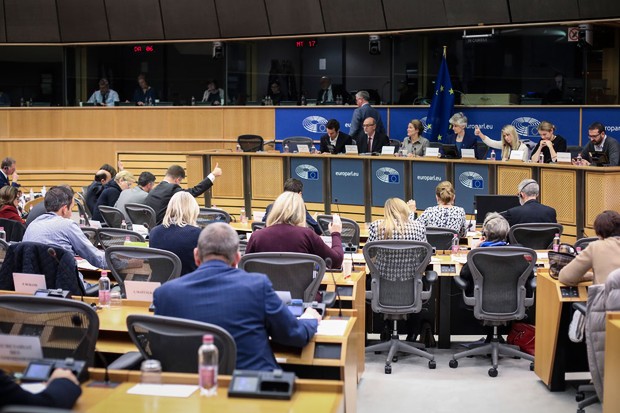The European Parliament limits the circulation of online TV services to news programmes
- The Legal Affairs Committee has drastically reduced the scope of the European regulation

The European Parliament's Legal Affairs Committee has drastically reduced the scope of the European regulation which was supposed to open up the possibility to broadcasters of allowing access to programmes online across national borders. Only news and information programmes are set to be available online.
As is the case for cable and satellite TV, the project proposed by the European Commission was intended to allow broadcasters to acquire rights in their home country only for online TV content, whether live or as part of a catch-up service. Licences would then be obtained from the collective management organisations in the country where the broadcaster's head office was based, even if it means covering the whole European Union.
On 21 November in Brussels, the European Parliament's Legal Affairs Committee went against the proposals of its rapporteur, the German MEP Tiemo Wölken, limiting the scope of application of the bill to news and general information programmes only. Tiemo Wölken had already suggested excluding sporting events and audiovisual works (films, series, documentaries) bought or co-financed by the broadcaster, as well as co-productions. But it was still deemed a step too far for MEPs in the Christian Democrat, Liberal and Eurosceptic political groups, who were swayed by the lobbying exercised by the representatives of content creators, producers and commercial TV.
On behalf of the European Film Agencies (EFADs), president Peter Dinges welcomed the fact that "by reducing the scope of the country of origin principle, the Committee has shown its support for territorial exclusivity and its commitment to a culturally diverse audiovisual sector." According to the EFADs, the abandonment of territorial licenses could lead to a reduction in funding and co-productions to the detriment of the diversity of what is on offer to the public. A position shared by commercial broadcasters for whom this is a step in the right direction: "we have long felt that bad legislation in this area would reduce the volume, quality and diversity of content on television. " The Federation of European Film Directors (FERA) is calling on the institutions involved in the next trilogue negotiations to "ensure that the rights of content creators to equitable remuneration for the rebroadcasting of their content are maintained," which will have to go through their collective management organisations.
Shadow project rapporteur for the ALDE group (liberals), MEP Jean-Marie Cavada, also welcomes this encouraging result for the defence of cultural creation in Europe: "this legislation preserves the principle of territoriality and allows for openness to OTT providers. It also recognises the value of territorial exclusivity while ensuring that citizens in the European Union can watch a wide range of high quality television programmes in Europe."
Public radio broadcasters (EBU) and consumer unions (BEUC) have been less quick to sing the outcome’s praises. For the European Broadcasting Union, the evolutionary approach proposed by Brussels offered a great opportunity to allow Europeans to enjoy more content online across borders. "Limiting the country of origin principle to news and information content will encourage consumers to turn to illegal or non-European services." The BEUC regrets the missed opportunity to end the geo-blocking of audiovisual content, "it's especially frustrating for consumers who belong to a linguistic minority and wish to watch films and TV series in their own language."
MEP Tiemo Wölken also demonstrated his disappointment and has already announced his intention to return to the plenary to change the negotiating mandate with the Council and the Commission. "The chance to create a European audience was missed. Conservative forces put the interests of big players over and above the interests of millions of European citizens in an irrational, unbalanced way. Under the pretext of cultural diversity, European broadcasters are being hindered from adapting to the digital age."
(Translated from French)
Did you enjoy reading this article? Please subscribe to our newsletter to receive more stories like this directly in your inbox.















